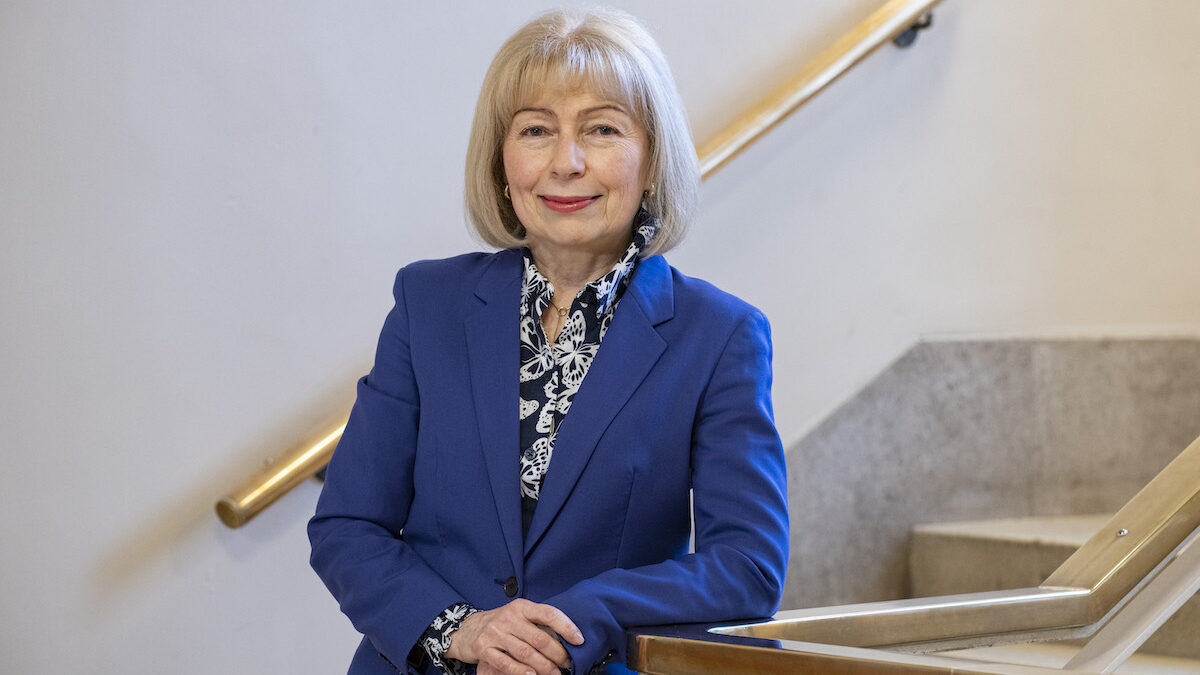A national health research and innovation conference is set to celebrate the 50th anniversary of the Scottish Government’s Chief Scientist Office.
The event at the Queen Elizabeth University Hospital in Glasgow on October 31 will reflect on five decades of progress, whilst looking forward to the sector’s increasingly tech-driven future.
The conference will bring together researchers, innovators, healthcare staff, policymakers, industry, and the public. It will explore how all can work together to tackle healthcare challenges, embed research, development and innovation in the NHS, and maximise opportunities for improvement and growth.
Caroline Lamb, chief executive of NHS Scotland and director-general health and social care, will open the event; she will be followed by Scotland’s Chief Scientist (Health), Professor Dame Anna Dominiczak, who will outline progress since the CSO was first inaugurated in 1973.
Professor Dominiczak said: “With the support of our scientific programme committee and conference working group, we are proud to be able to launch the full programme for what we believe will be an exciting, engaging event marking five decades of vital health research and innovation.
“While reflecting on progress, we are also looking forward to what is truly possible across the next 50 years, with research and innovation taking centre stage.
“It is the first conference under my leadership as Chief Scientist for Health and it has been a real team effort to create what I believe is a really exiting programme. It reflects the strength and diversity of our research and innovation capabilities here in Scotland, whilst providing a platform for learning, discussion, and networking.
“We have a range of wonderful speakers, and I thank them for bringing their insight, expertise and support to what will be a great conference.”
Chief Medical Officer Sir Gregor Smith and Clinical Director Professor Jason Leitch, who led Scotland’s Covid pandemic response, will be among the speakers as well as international guests.
This includes Professor Tan Chorh Chuan, Chief Health Scientist, Ministry of Health, Singapore Executive Director, MOH Office for Healthcare Transformation, who will reflect on health and biomedical science research and innovation in Singapore. Professor Sir John Irving Bell, Regius Professor of Medicine at the University of Oxford, and recently appointed Companion of Honour in the King’s Birthday Honours list for his work in medicine and life sciences, will also address the event.
Generation Scotland – a research study looking at the health and well-being of volunteers and their families – will be among some of the ‘significant’ Scottish healthcare projects showcased at the event. The study already has over 24,000 people from 7,000 families taking part, and is supporting research into diseases, including Covid-19, cancer, heart disease, diabetes, depression, dementia and much more.
Delegates will also learn more about EAVE II (Early Pandemic Evaluation and Enhanced Surveillance of Covid-19) from Professor Sir Aziz Sheikh, Professor of Primary Care Research & Development and Director of the Usher Institute, University of Edinburgh. EAVE II was central to the Scottish and UK governments’ response to the pandemic – tracking it in near real-time, as well as the effectiveness of the vaccines across Scotland.
Industry partnerships will also feature. Dr Ken Sutherland, President, Canon Medical Research Europe and James Blackwood, AI Strategy and Portfolio Lead, NHS Greater Glasgow and Clyde will come together to present on the Industrial Centre for Artificial Intelligence Research in Digital Diagnostics (iCAIRD), while Mark Cook, Chair of the Industry Leadership Group for Life Sciences Scotland and Mark Logan, Chief Entrepreneur for Scottish Government will join a panel discussion exploring Scotland’s triple helix approach of industry, NHS and academia working together to tackle healthcare challenges and attract investment into Scotland’s growing research and innovation ecosystem.
Delegates can also choose from a range of themed sessions – Precision Medicine, Clinical trials, Data and Artificial Intelligence (AI), Enabling participation in research and Patient and public involvement.
Networking opportunities are being offered throughout the day, with the chance to contribute to discussions, and the research and innovation community is encourage to get involved through the submission of oral or poster abstracts.
Professor Dominiczak added: “There is so much forward-thinking activity going on across the country with research and innovation forming a vital building block of the NHS Recovery Plan. The conference is an opportunity to showcase and champion the great work coming out of a talented community while identifying learnings that can help it to continuously evolve and improve.
“Life sciences of course remains a key priority and significant growth area, as cited in the recently published National Innovation Strategy. Further progress will also continue to be made thanks to Scottish research and innovation targeting other major priorities such as cancer and dementia, with fresh strategies for both being recently published.
“This is underpinned by an enthusiastic, driven workforce that is keen to develop and integrate new breakthroughs for better patient outcomes. We believe this conference represents just the beginning of so much more.”
The full conference programme can be found online here and delegates can register here.




